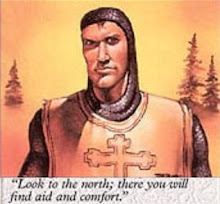I have another life philosophy... actually maybe "strategy" is a better word.
I call this strategy, "Don't Be Richie."
When I was in college, one of my friends started taking guitar lessons from a guy named Richie. Richie was close to our age. He apparently made the unilateral decision that he was now part of our overall friend group and he should invite himself over to hang out with us whenever possible. He'd run into us somewhere and hang out with us. Sometimes he'd show up at my friend's house, where odds were reasonable a bunch of us would be hanging out and he'd...hang out.
Richie was kind of ... awkward. As I recall, his major flaw would be that he would enter into every conversation with some completely different conversation. Like we'd be talking about the movie we saw recently and he'd jump in and start talking about his motorcycle. We sought to ditch Richie whenever possible and never invite him anywhere and do everything reasonable to discourage him without actually saying "go! away!". I think the best moment was when we were leaving my friend's house to go somewhere and passed Richie on the narrow road going the other way. We pretended to not see him and got the hell out of there. Everyone was basically nice to him when he was around but as soon as his back was turned it was all, "Holy crap, how do we ditch this guy?"
A thought floated through my mind at that moment. "Wait... we're all nice to him until his back is turned... and they're all nice to me when I'm around... dun dun dun!"
I immediately began Operation Don't Be Richie, which continues to this day. The cornerstones of this strategy are as follows:
* If someone declines invitations to three events in a row, stop inviting them to anything unless they specifically request otherwise. They might be trying to avoid me.
* Always give people an out when extending an invitation. "Would you like to go to a movie Saturday" is better than "Are you busy this weekend", since the latter question is actually a trap.
* Never invite myself anywhere, even if I really really want to go. Wait to be invited.
Through this strategy I can ensure that I am never Richie, or "That Guy" as people like him are more universally known.
Get Buck Showalter on the Phone
11 years ago
